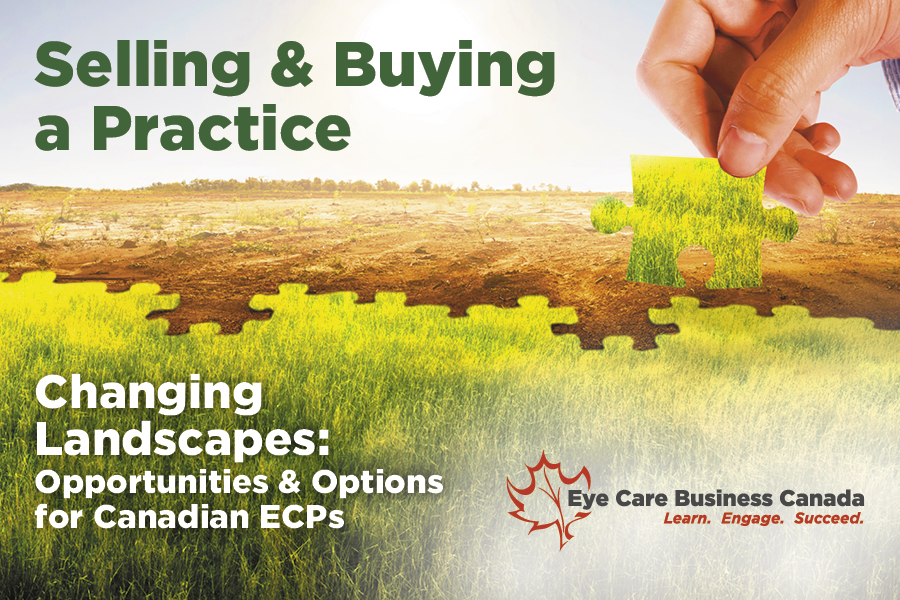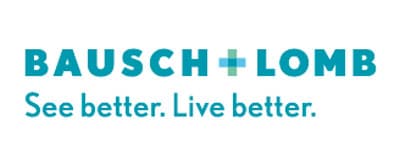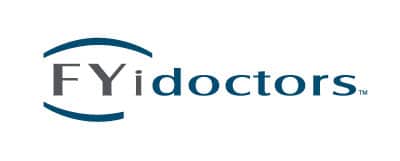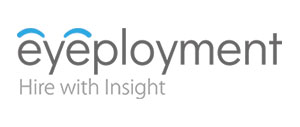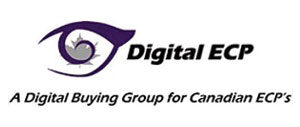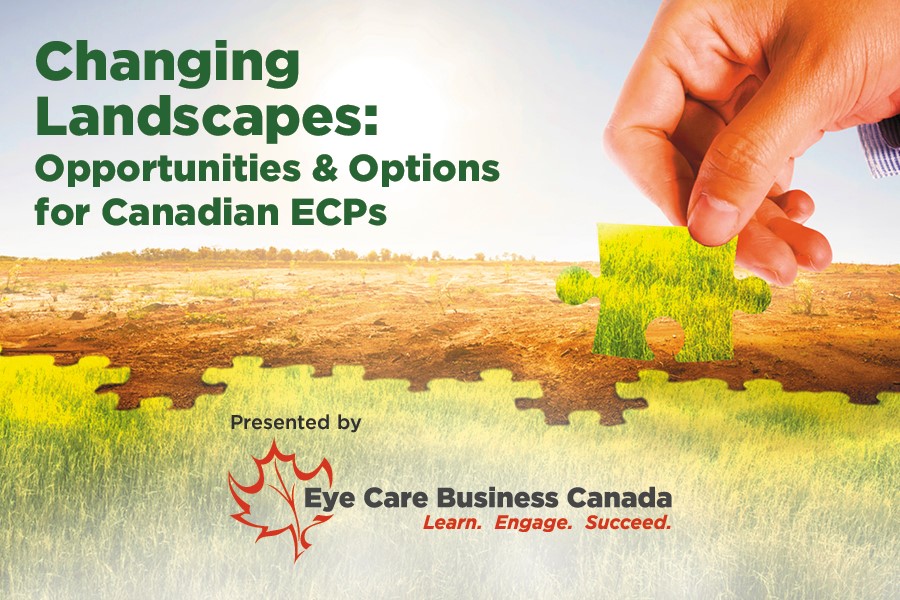
To understand when a good business isn’t a good investment, you need to understand what makes a business good and how they are priced.
A Good Business
When we talk about investing, whether it be buying an optometric practice or a stock, a good business can be easily defined as one that shows revenue growth, easily pay its debts and generates sufficient income to pay its owners a dividend. A good optometric business should have full calendar bookings and illustrate a strong patient base. A good investable business should have the ability raise revenues to keep pace with inflation and the need to pay its people well. A good business should have a board of directors that have a clear vision for the future.
A Good Investment
The reason a good business isn’t necessarily a good investment is based on the price you pay. This is typically referred to as the Price per Earnings ratio for most investable business shares. When purchasing an optometric practice, we often refer to the “multiple”.
EBITA Multiples
Private businesses are typically sold in large portions rather than a share at a time. Regardless, the value of the business is often determined as a multiple of the earnings of that business, specifically the Earnings Before Interest expense, Taxes & Amortization.
However, what is included in expenses will vary. Currently, when selling from one doctor to another, a 3X multiple of EBITA is often used. However, when aggregator corporations are looking to buy, you will likely hear 5X, or higher, as a multiple being used.
I Like 5X Better than 3X
On the surface, a 5X multiple sounds better but it rarely represents a significant difference from the 3X multiple. I know, confusing. The biggest reason is that the calculation of EBITA will vary.
Typically, in a private sale, expenses deducted prior to calculating EBITA does not include any of the owner optometrist direct payments, whereas with a larger corporate buyer, EBITA will be adjusted such that the expenses do include the normal and customary costs of having to hire all optometrists for the clinic.
16.9X P/E on Investments
Let’s shift a bit now to investment businesses. As of September 30, 2022, the S&P/TSX Composite markets had an average price to earnings of 16.9X.
Essentially this means that if you were to buy into the aforementioned market that day, you would have paid 16.9X the average earnings per share of all the companies listed. Think of it this way: It would take you nearly 17 years to recoup your costs if earnings for the business don’t increase.
Is that a good price?
Well, it depends. Let’s look at the stock price and earnings for CISCO, an American-based multinational digital communications technology conglomerate headquartered in California. This has been a very profitable business, growing it’s net income by 315% from March 27, 2000 to September 28, 2021. It’s a really good business.
However, if you bought the business on March 27, 2000, when there was a lot of upward speculation for the growth of the company and trading was at a peak, you would have paid 226X P/E. That’s really expensive.
And even with the growth CISCO saw through to September 28, 2021, your investment would still be down 33% on market stock price. That’s a bad Investment.
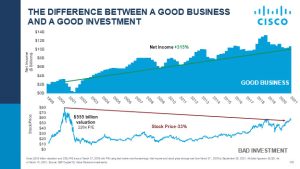
The Price You Pay
The price you pay for an investment is one of the key determinants on whether or not you have a good investment. It might not be everything, but price really does matter a LOT. If you are buying a new practice, you want to be able to pay it off in a reasonable time period. If you are looking for a good investment, you want a good business at a good price, and when markets are down, there are definitely some good bargains to be had.
Advisory
As your Chief Financial Officer, I am here to help you make smart investments, whether it’s buying a practice or upgrading your portfolio. Helping you understand your money and assisting you in making smart decisions about your debt repayment, insurance protection, tax management and wealth creation, are just some of ways that I work as your fiduciary.
Have more questions than answers? Educating you is just one piece of being your personal CFO that we do. Call (780-261-3098) or email (Roxanne@C3wealthadvisors.ca) today to set up your next conversation with us.
Roxanne Arnal is a former Optometrist, Professional Corporation President, and practice owner. Today she is on a mission of Empowering You & Your Wealth with Clarity, Confidence & Control.
These articles are for information purposes only and are not a replacement for personal financial planning. Everyone’s circumstances and needs are different. Errors and Omissions exempt.

ROXANNE ARNAL,
Optometrist and Certified Financial Planner
Roxanne Arnal graduated from UW School of Optometry in 1995 and is a past-president of the Alberta Association of Optometrists (AAO) and the Canadian Association of Optometry Students (CAOS). She subsequently built a thriving optometric practice in rural Alberta.
Roxanne took the decision in 2012 to leave optometry and become a financial planning professional. She now focuses on providing services to Optometrists with a plan to parlay her unique expertise to help optometric practices and their families across the country meet their goals through astute financial planning and decision making.
Roxanne splits EWO podcast hosting duties with Dr. Glen Chiasson.












